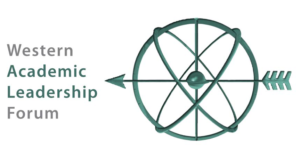Western Academic Leadership Forum Sidebar

Forum Resources
Student Wellness in the Four-Year Public Higher Education Sector: A Snapshot of the WICHE Region
The Executive Committee of the Western Academic Leadership Forum (Forum) decided at its April 2017 annual meeting to explore options for programs that could assist member institutions with the wellness challenges facing our students. An invitation to participate in a wellness survey was sent to 52 member institutions to gain an understanding of changes and trends over a five-year period, from FY 2013-17. Twenty-five of the 52 institutions responded to the survey.
A summary of survey responses is outlined in this report. The data paint a picture of the wellness trends impacting higher education institutions, and the strategies universities are using to respond in the following categories: Mental Health-Related Counseling, Student Conduct Violations, Accommodations for Students with Disabilities, Food Insecurity, and Student Homelessness. In general, campuses have experienced an increase in the number of students in need of services in one or all of these categories. This is true even for institutions that have declining enrollment. Institutions speculate that these increases are due to the mounting needs of students, as well as better identification of students needing services, and better awareness among students about the services available.
Accelerated Learning/Concurrent Enrollment Policy in the Four-Year Public Higher Education Sector
The questions addressed in this report focus on the partnerships that deliver academic content to college-ready high school students and how to ensure this “accelerated learning” is equitably distributed in that shared secondary-postsecondary space.
The project aimed to create and share knowledge about accelerated learning/concurrent enrollment as an educational strategy. The subgroup members were focused on the policy landscape at the intersection of
state, federal, and local higher education authority; and, given the emergent policy landscape thus described, opportunities to promote educational equity as a core value.